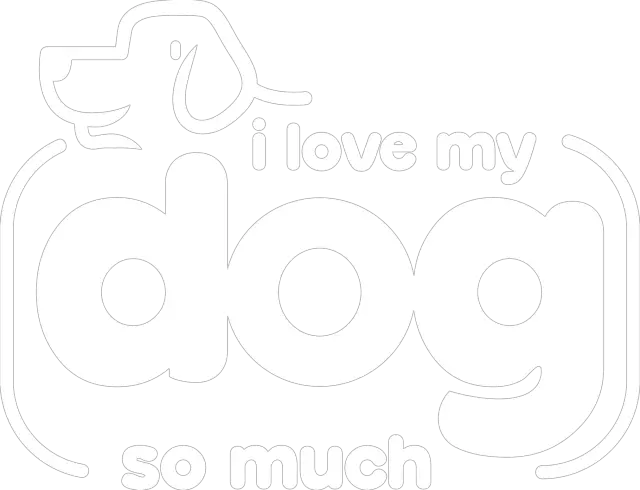In addition to being loyal companions, dogs have changed the way we lived for centuries. Today, they have become more domesticated, but that doesn’t stop how they are influencing humans. Did you know that they also had a hand (or paw) in the way we speak? Before words like ‘doggo’ and ‘pupper’, and many others have invaded the lexicon, man’s best friend has influenced words and phrases that we use every day. Here are examples of dog-related words or idioms that have become a part of our vocabulary.
Rain cats and dogs

There are no clear explanations, but expert linguists say that the expression has been around since at least the 17th century. It’s been said that in Norse mythology, witches shapeshift into cats to ride the storm, while dogs and wolves were the attendants of Odin whose son, Thor, is the god of thunder, lightning, and storms. There’s also a more literal and unappealing theory that back then, gutters would be overflowing with dead dogs and cats after a cloudburst.
Bulldog edition

The term has been used by newspaper editors to indicate ‘an early edition of a morning paper the day before its publication date’ since the early 20th century. The origins are vague, but some theories relate to competing NYC editors who ‘fought like bulldogs’ to outscoop each other. Others suggested that it refers to the attention-grabbing headlines that ‘bites’ the reader or maybe the way the bold headlines “barked” for attention. Regardless, it has become an established part of journalism jargon.
Dog’s breakfast/dinner

Dog’s breakfast is British slang for ‘distasteful, inedible mess or mixture, literally and figuratively. Some also use it to connote bad cooking which only a dog could stomach. In the 20th century, it was used as a fashion term: a mess concerning wardrobe or appearance. It’s unclear how it became associated with one’s appearance. Over the pond, the American expression: “to put on the dog’ means “to pretend that one is stylish or rich” is unlikely to be cut from the same cloth.
Mondo

In Zen Buddhism, mondo is a rapid questioning technique between master and pupil to push the pupil’s limitations of conceptual thought. It’s also the title of a series of bizarre and gruesome (and offensive) films. The first “Mondo” film was the 1962 Italian shocker Mondo Cane, which translates as “Dog’s World.” It features explicit vignettes depicting bizarre human behavior. Nowadays, mondo has more mainstream use as an adjectival and adverbial intensifier for extremes such as “mondo disaster” and “mondo notion” which have become catchphrases courtesy of Michaelangelo from Teenage Mutant Ninja Turtles.
Yellow dog

In the 19th century, the noun meant a low despicable person. Most probably due to the color yellow’s traditional association with cowardice. The insult evolved to describe organizations that opposed trade unions. There’s also a political use for it: A “yellow dog Democrat” is a person who strictly votes the party line. It is said that such a person would rather vote for a yellow dog than for a rival party.
Snack

Snack made its way from ‘snapping’ a.k.a a sudden biting motion or ‘to take a snap at something’. During the 1400s, people would say a dog ‘snaked’ or ‘took a snake’ which comes from the Dutch verb snacken which meant ‘to bite’.
It was not until the early 1800s when people began using it to mean a small amount of food eaten between meals.
Bench

In the past, benching referred to seating someone on a bench of justice or honor. ‘Bench shows’ are shows in which dogs are exhibited on benches. Then the term evolved and took on a different meaning such as in sports or the act of removing or keeping the player out of the game or match. Nowadays, benching means to string or tag along with someone you are somewhat interested in romantically by sending them a text or tweet, but not following up on the response.
Dogwood

Dogwood is a tree that blooms in spring and berries in the fall. Some say it signals the coming of winter. As of its etymology, a popular theory suggests that it is derived from the Middle English ‘dag’ from the French ‘dague’ or a pointed object like a “dagger”. This comes from the tree’s hardwood and stems that have been used to make piercing tools. In this sense, some believe that ‘dog’ is a corruption of dag, but the evidence is unclear. The tree has also been called ‘dog tree’, ‘dogberry’, and ‘hound’s-berry’ because of the way the branches ‘bark’ when rubbing in the breeze.
Caterpillar

In France, they call this insect chenille which in Latin means “little dog”. Apparently, people from olden times saw a resemblance with the fuzzy critter to various animals like dogs, bears, etc. ‘Caterpillar’ comes from the French dialect catepelose—Latin for “hairy” (pilus). Pilus is the root of the English word pile or “a coat or short furry hairs.”
Canary

Originally called Canary birds, this type of bird originated from the Canary Islands and was brought to Europe in the 16th century. The island’s name comes from the Latin Canariae insulae or “dog islands’ ‘ due to the large number of dogs inhabiting that place from 50 B.C. to circa A.D. 24. Fast forward to the future, the dogs for which the islands were named have been erased from memory, but the birds remain closely linked to their namesake.
Canine

Canine is a derivative of the caninus which is based on canis that means “dog”. This term was used circa 1400 as a noun and adjective for the four-pointed teeth on the jaws of mammals (canine teeth). By the 17th century, people began to use it as an adjective (canine passion). The noun did not gain (a friendly canine) popularity until the 19th century.
Mutt

Mutt originated in the early 1800s from the word muttonhead which is an expression to address a hapless or unlucky person. It is believed to be the foundation of the insult meathead. The term muttonhead was shortened to mutt and then became a general term for mongrel dogs and other four-legged animals.
Hangdog

Hold on tight because this next one gets dark. In the olden times, dogs that misbehaved violently in ways such as biting a person or stealing their food were punished and executed by hanging. In fact, there’s a Shakespeare play called Two Gentlemen of Verona that referenced this very act. Nowadays, it became an adjective describing dejection, guilt, or shame that resembled a puppy’s sad face. It is also used as a noun to refer to an ‘extremely degraded person’ that could hang a dog.
Bone to Pick

Originally, the phrase “a bone to pick” meant “to have something to keep one occupied.” Hence, if somebody has a bone to pick, they have something to occupy their attention like a dog busy gnawing on a bone. But it evolved into “a problem or difficulty to solve”. So if you have “a bone to pick with someone,” you have an issue with that person that needs to be solved without hurry and with much gusto like a dog does with a bone.
Dog Eat Dog

This modern expression that we know today that means, “a situation where people are in fierce and ruthless competition and willing to do anything to gain the advantage,” originally appeared in 1931. However, it was based on a latin phrase that means the complete opposite — canis caninam non est, meaning “a dog does not eat the flesh of a dog.” But sometime in the early 1700s, the phrase changed to mean “Dogs are hard drove when they eat dogs,” which is closer to its modern usage.
Do you know any dog-related words or phrases in the dictionary? Feel free to add to the list above.









